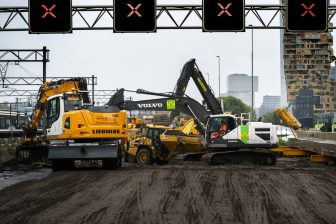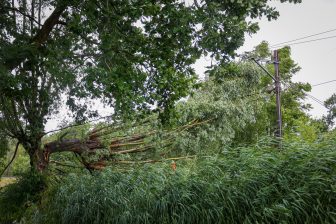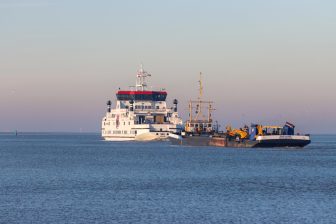European Railway Award 2007
Europe’s rail sector honours key players
Brussels, Belgium – 17 October 2007 in Brussels, Europe’s railway sector paid tribute to the achievements of two of Europe’s finest contributors to modern-day railway transport development.
Taking place in the heart of the European Quarter in the beautiful Bibliotheque Solvay, the presentation of European Railway Awards – an initiative organised by the European Railway Industries (UNIFE) and the Community of European Railways (CER) – brought together top business leaders, EU officials, politicians, civil servants, rail sector stakeholders and media from across the EU.
Two awards were presented at the ceremony; one for technical achievements in European railways, the other for political vision and progress in the legal framework. The award for technical achievements was presented to Jean Dupuy – the man responsible for the development and rollout of the very first French TGV. The second award was presented to former EU Commissioner for Transport, Karel Van Miert. He is best known for laying down the foundations for the creation of an integrated European railway market.
In his opening ceremony address, André Navarri, UNIFE Chairman and President of Bombardier Transportation, spoke about how railways today were fast becoming the best means of meeting sustainable transport demands in the 21st century, “moving people and goods to destinations on time, safely and with minimal toll on the environment.” Mr Navarri went on to say that investment in railways created jobs, contributed to economic growth and cited Spain as a very recent example of this.
European Commission Vice-President Jacques Barrot handed over the prize to Karel Van Miert. He underlined the importance of the recommendations for priority projects of the Van Miert group in 2003 that have helped lead to the current EU policy on sustainable transport. “Public bodies need to meet their responsibilities, and with the support of the European corridor coordinators engage in those projects which are crucial for sustainable development in Europe,” Mr Barrot said. He congratulated Mr Van Miert for his perseverance in supporting, as EU corridor coordinator, the important European Berlin – Palermo axis, and the Brenner tunnel.
Anne-Marie Idrac, CER Vice-Chairwoman and CEO of SNCF handed over the award to Jean Dupuy. She praised him for being the personification of the high speed train TGV: “All through the development phase and in your different positions in SNCF, you managed the high speed train project with utmost precision, persistence and will,” she said. “In the middle of the 1960s, at a moment when priority was being given to road and air transport projects, you succeeded in convincing people that there was room to develop passenger rail transport.”
In summing-up, Aad Veenman, CER Chairman mentioned the role of the European Commission in putting rail high on the EU’s political and economic agenda and thanked Commission Vice-President Barrot for his attendance. Mr Veenman concluded that the awards given out today were there to highlight and draw attention to the achievements of two individuals. “The modern world, and even the railway world, is made by man,” he said, adding, “People, both good engineers, good politicians but certainly also good train drivers, conductors, maintenance staff, station service staff, and so many more, are making the railways what they are.”
About the organisers
UNIFE the European Railway Industries – represents over 60 of Europe’s leading rail supply companies active in the design, manufacture, maintenance and refurbishment of rail transport systems, subsystems and related equipment. Membership also extends to 16 National Organisations as associated members, representing an additional 900 railway supply companies.
UNIFE’s role is to represent its members’ interests at the level of both European and international institutions. UNIFE’s mission is to pro-actively develop an environment in which UNIFE members can provide competitive railway systems for increased rail traffic.
The European rail supply industry generates around €60 billion in turnover annually, directly employs 130,000 people and manufactures 70% of the worldwide production of rail equipment.
CER – the Community of European Railway and Infrastructure Companies – brings together 66 railway undertakings and infrastructure companies from the European Union, the accession countries, as well as from Norway and Switzerland. It is based in Brussels and represents its members’ interests vis-à-vis the European Parliament, Commission and Council of Ministers as well as other policy makers and transport actors.
CER’s main focus is promoting the development of rail as essential to the creation of a sustainable transport system which is both efficient and environmentally sound. A key priority in this respect for CER is the achievement of a more balanced modal split in the transport system, minimising external costs arising to society and improving economic efficiency. In parallel to the railways’ own initiatives for improving the quality of rail services, CER sees ensuring sufficient investment in infrastructure rail projects as a prerequisite for achieving the desired modal split. All policy areas of significance to railway transport are dealt with by CER, which offers advice and recommendations to European policy makers.
U las zojuist één van de gratis premium artikelen
Onbeperkt lezen? Profiteer nu van de introductieaanbieding voor € 10,- per maand.
Bent u al abonnee?



